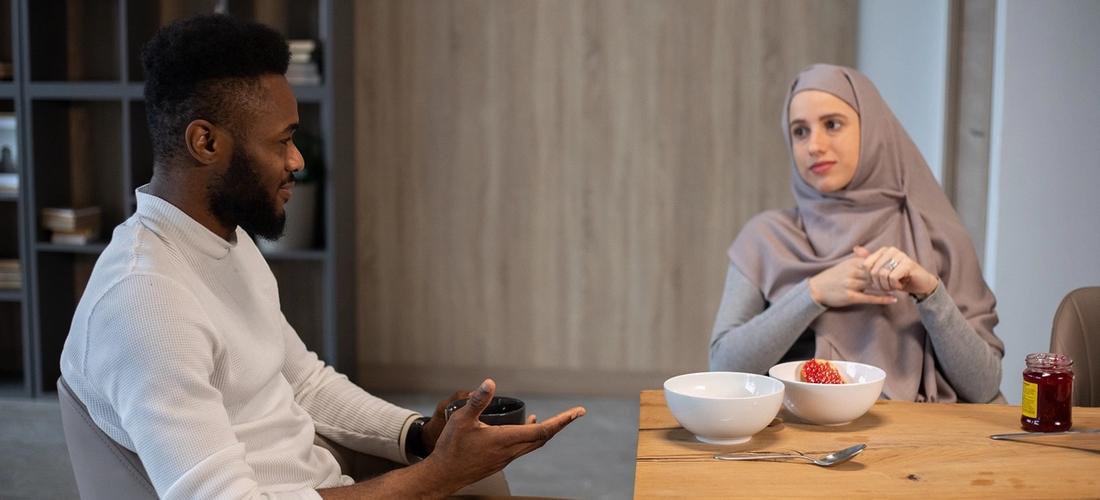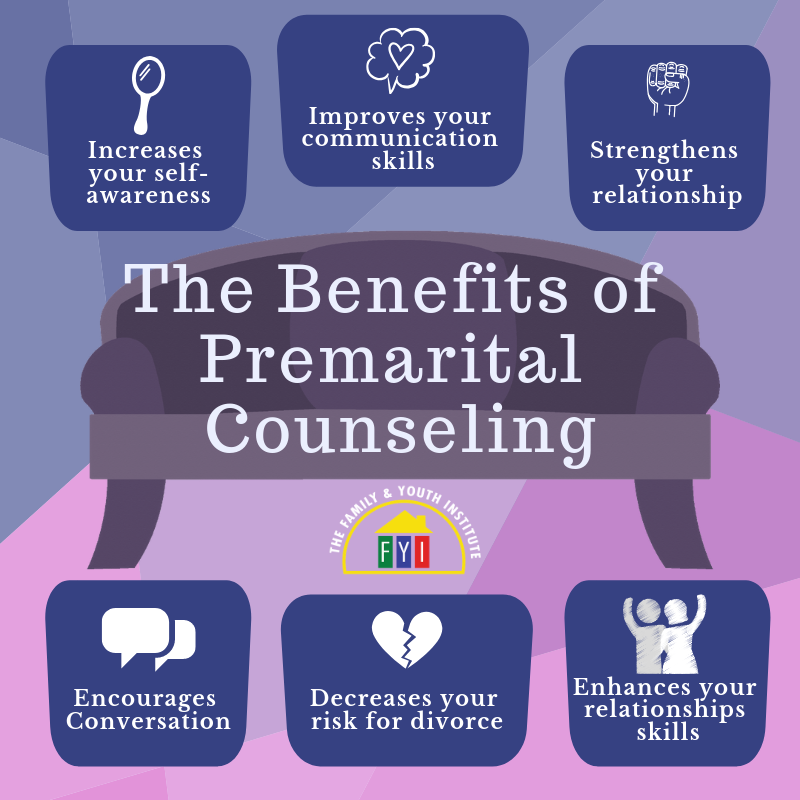How Do You Prepare for the Commitment of a Lifetime? Get Premarital Counseling
Community
|
May 13, 2022
|
4 MIN READ

Image source: Pexels by Monstera
Editor's Note: The Family and Youth Institute (The FYI) is a national research and education institute focusing on Muslim mental health and family wellness. The FYI provides research-based educational resources like animated videos, articles, toolkits and infographics. This blog post is an excerpt from The FYI’s Marriage Prep Toolkit. Check out the full toolkit and The FYI’s very own online marriage prep course here.
Summertime means sunshine, warm weather and weddings, of course! With life resuming pre-COVID activities, you’re sure to hear about more than a few couples planning to tie the knot this summer.
Now, we all know what happens next. As soon as a couple announces their engagement, family and friends are eager to congratulate them. And soon after, the wedding preparations begin!
Despite how excited we all get about wedding season, research shows that Muslim couples are often unprepared for the challenges of marriage.
Amal Killawi, a researcher from The Family and Youth Institute, conducted a study about marriage among Muslim American couples. She found that many couples struggle in their early years of marriage with issues like:
1. Not realizing that marriage requires preparation.
2. Mismanaged expectations around the everyday reality of marriage.
3. Red flags that were left unaddressed during the courtship.
Check out FYI's Instagram post about the top 5 reasons for conflict among American Muslim couples before they marry.
Getting married is a beautiful blessing, but it’s also a big responsibility. Along with the wedding prep, it’s important that couples prepare for the relationship of a lifetime.
(Check out this HH article about 100 questions potential spouses should ask each other before marriage or even after.)
One of the best ways to do this is premarital counseling. Research shows that efforts to prepare for marriage – like premarital counseling – can improve a couple’s “relationship skills,” increase their satisfaction in their marriage, and reduce their conflict and odds of divorce.
Did you know that one study on divorced Muslims found that most participants wished they had more premarital counseling? Another study on Muslims found that most participants would have participated in premarital counseling if someone had encouraged them or required them to do so.*
So what happens during premarital counseling?
Think of premarital counseling as a series of customized meetings with a professional who will guide you through this very important stage of your relationship. Through these meetings, you’ll learn the skills and tools needed for a healthy marriage.
Your counselor will likely start things off with a relationship assessment to guide your discussions during the sessions. To complete the assessment, you’ll each answer questions about your relationship as it relates to communication, conflict resolution, finances, personality, family of origin, religion and parenting.
Afterwards, you’ll receive a personalized report with discussion topics relevant to your relationship. You’ll discuss your expectations around marriage, practice healthy communication and conflict resolution skills and develop marriage goals together.
Some counselors may prefer to meet with you and your partner for a few sessions, while others may encourage you to participate in more sessions if needed.
Check out this video from FYI about 7 pre-marriage tips to consider before saying "I do" or "I accept her/him as my spouse."
Here’s how one couple used premarital counseling:
A couple of months into courting, everything mostly clicked between us. But there were a few things that we differed about. We weren’t sure how much this would impact our marriage, so we signed up for a premarital counseling session. Taking the assessment and talking with our counselor helped us pinpoint exactly what we were feeling. It helped us name it and talk about it more constructively. It was also very reassuring to know that we had many strength areas as a couple, and growth areas too – just like every normal, healthy relationship. Our counselor taught us strategies we could use when we came across a topic or issue of conflict. After a few sessions, we felt confident about taking the next step together. Alhamdulliah, since then it’s been four years of being happily married!
FYI interview
(What is a Muslim courtship? This HH interview with Zara J, host of The Courtship Code podcast, breaks it all down.)
You can also use premarital counseling sessions to:
- Assess for compatibility by learning more about yourself and your potential spouse.
- Improve your ability to communicate and learn conflict-resolution skills.
- Discuss sensitive issues or work through any fears about marriage or commitment.
- Manage expectations and develop couples’ goals.

Infographic source: FYI
Entering an intimate relationship can also make us aware of the issues we may have experienced in our own families. Some people realize that they have no good role model for a healthy marriage. Others realize that they have fears related to observing their parents’ marriage (divorce, abuse, betrayal, etc.). It’s also normal for unresolved trauma to show up at this time in your life, even if it didn’t show up before. You may also experience conflict or uncover more serious concerns with your potential spouse. You can discuss these issues during premarital counseling or find a trained professional counselor who can help you work through these issues.
When should I consider premarital counseling?
It’s best to get premarital counseling before you commit to marriage (so during the courting phase), but it can still be incredibly beneficial at any point in the relationship, like:
- When you’re seriously talking to someone for marriage
- When you’ve both made the decision to get married
- After engagement
- After the nikkah (kitab)
- After marriage
Where can I get premarital counseling?
Seek out a trained professional – someone with experience in clinical counseling. Trained professionals will offer different types of premarital counseling and will often incorporate their clinical expertise into the sessions. Although some imams may offer or require premarital counseling, it’s rare that they are trained in relationship counseling, family dynamics and/or mental health issues. Premarital counseling with an imam can still be a valuable way to prepare for marriage, especially if you have questions about religion or religious practice. However, know that there may be limitations in your sessions with an imam.

Image source: Pexels
Many couples have found it beneficial to meet with both an imam and a counseling professional for premarital counseling. One way to find a counselor is to ask family, friends, or community leaders for leads in your area. You can also check out Section 7 of The FYI’s Marriage Prep toolkit for local therapist directories.
Healthy couples and families are the building blocks of thriving communities. If you know a couple who is getting ready to tie the knot, share this blog post with them and encourage them to get premarital counseling!
This blog post is an excerpt from The FYI’s Marriage Prep Toolkit. Check out the full toolkit and The FYI’s very own online marriage prep course here.
*For reference information, check out The FYI's Infographic Pre-Marriage Considerations: Top 5 Reasons for Conflict among American Muslim Couples.
Subscribe to be the first to know about new product releases, styling ideas and more.
What products are you interested in?

